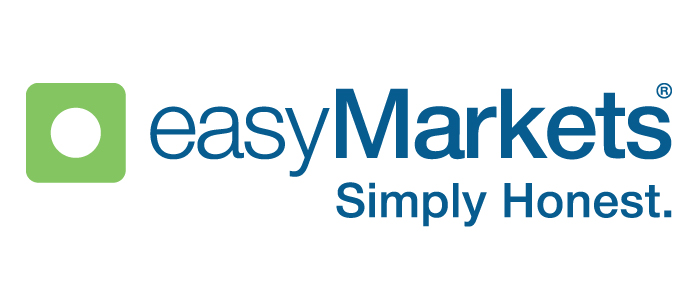Many types of brokers can be found in the most dynamic market in the world. These brokers have been offering different kinds of services, and customers’ trades depend significantly on the broker. Many traders (especially those who can afford it) prefer brokers who enable direct access to the market. There are two types of such brokers:
– ECN (Electronic Communication Network)
– STP (Straight- Through Processing)
Both of these brokers offer DMA (Direct Market Access), and that is the main feature they have in common with the difference that not all STP brokers offer DMA, and ECN brokers always do. The review will be focused on STP brokers who include DMA and will try to explain what DMA means in a broader sense.
| Broker | Bonus | More |
|---|---|---|

|
Check Website | Review |
What is DMA?
 Direct Market Access refers to electronic trade executions linking traders directly to the market where they can place trading orders with liquidity providers. DMA is sometimes hard to differentiate from ECN and STP, but there are some features true to STP. They chiefly include only market execution, five-digit pricing, variable spreads, and, most often, but not necessarily, access to the depth of the market books.
Direct Market Access refers to electronic trade executions linking traders directly to the market where they can place trading orders with liquidity providers. DMA is sometimes hard to differentiate from ECN and STP, but there are some features true to STP. They chiefly include only market execution, five-digit pricing, variable spreads, and, most often, but not necessarily, access to the depth of the market books.
DMA offers better execution transparency; orders are sent to the market and are being filled according to available quotes provided by liquidity providers. On the other hand, STP without DMA can include instant executions that are less transparent given that orders are being filled out directly by the broker and hedged with the liquidity providers. Traders will probably be subject to requotes if hedging opportunities are scarce at the moment of the trade. Like the ECN and STP, the DMA brokers may also charge a commission or add a markup spread to charge for their services.
The Advantages of DMA/STP
First of all, DMA offers an anonymous platform with neutral prices that mirror the global market conditions. Traders are also safe from requotes, and they are exposed to more competitive prices. This means that your trades will close with a mouse click, not being subject to requoted prices. Also, all trading types are allowed with DMA (like hedging, scalping, news trading, position trading, etc.). DMA brokers offer access to more liquidity providers which means better prices. As already mentioned, true DMA brokers never offer fixed spreads, because the ask/bid price constantly changes as it derives from different liquidity providers.
Disadvantages of DMA Brokers
The DMA brokers have been known for imposing penalty fees upon traders who are inactive on their accounts or who do not trade often enough. This already indicates that the broker is for serious, committed traders who trade regularly. Also, deposit requirements can amount up to $1,000, $5,000, etc. DMA brokers are strictly known for variable spreads, and fixed spreads are not a part of the DMA deal. This can also be seen as a disadvantage because variable spreads are riskier than fixed spreads.
The Difference between DMA and ECN
The main difference between ECN and DMA is that DMA brokers make individual contracts with each liquidity provider, while ECN brokers are connected to anonymous ECN networks where there are no direct contracts. This means that some liquidity providers might withhold their best quotes inside the ECN network, and brokers, in the end, do not get the best prices to offer to traders. Another factor that plays a significant role is that ECN technology has been costly. Processing, execution, and other features have to be paid for by traders, which does not always pay off. The STP/DMA is more affordable given that their spreads remain low due to access to the best prices. Even if they add a markup spread like ECN brokers, it is less costly at the end for the trader. Chances for requotes, slippage and partial order fillings are bigger with ECN because ECN is less controllable. For example, anonymous participants can place misleading trades which they later on reject.
DMA and Pricing
As we already said, DMA brokers and ECN brokers add a markup to the actual spread to make some profit for their services. Both broker types sometimes charge a commission (e.g. on a monthly basis) which is based on the trading volume. This has been tricky for small traders who sometimes end up paying more for best price quotes and low spreads. It is not a secret that DMA, just like ECN, is more suitable for large investors who trade big volumes and who invest significant amounts. The more you invest, the more you get back is the principle.
Combination of all Types
Some brokers try to cover it all and offer all three possibilities; a dealing desk account, an ECN, and STP/DMA account. Again, small traders will probably not be directed to liquidity providers given that liquidity providers do not accept small orders (e.g. under 0.1 lot). It is clear that traders have to invest more, and trade more frequently if they really want to have access to the best quotes and overall conditions in the market. It is known that dealing desk brokers provide quotes for traders, which automatically makes them less transparent.
Actually, dealing desk brokers do not have the capacity to deal with large, profitable investors because their liquidity is limited. On the other hand, STP/DMA brokers have nothing to do with the trade outcomes since they are not the liquidity providers. They get the same share whether their trader wins or loses. They are not the “adversary” party, just the intermediary (like the ECN broker). Conflict of interest is certainly avoided with DMA brokers and traders do not need to worry about being set up by their broker (latency problems, requoting of prices, etc.).
Conclusion
There are many types of brokers who offer different services, and it is important to explain the subtle differences between them. Traders often get confused in the deep sea of offers, and they need to know exactly what they can expect from desk dealing brokers, ECN brokers, STP, or STP/DMA brokers. Some of them are so similar that it is hard to spot the difference, but traders should be aware even of the slightest difference in order to turn their trading to profit. This review has reflected on the definition, advantages, and disadvantages of the STP/DMA broker. The goal was to indicate the differences and similarities with regular brokers and ECN brokers, and what traders can expect from this specific broker type.













